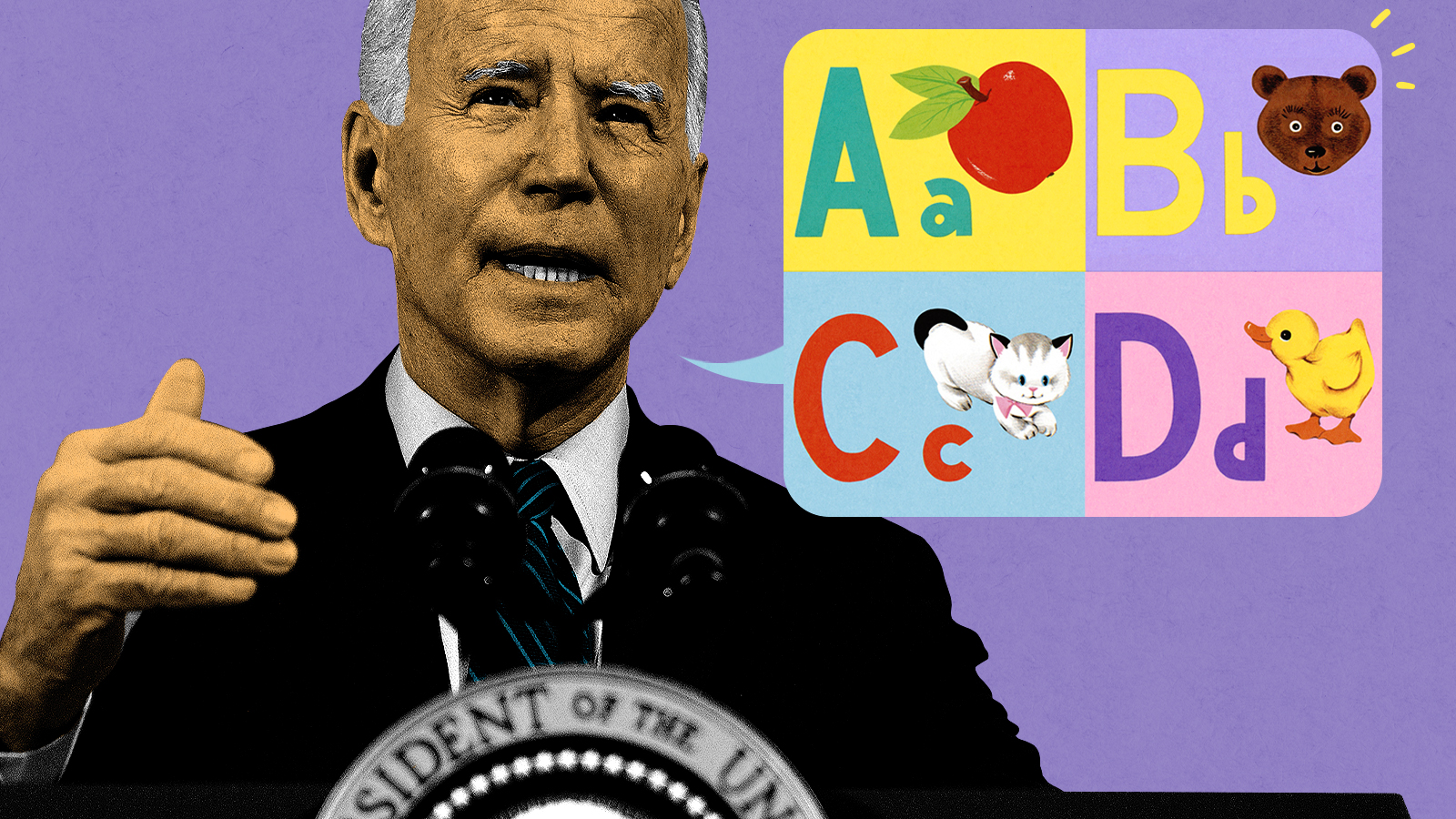We're not quite an Idiocracy, but presidential speeches are getting dumber


A free daily email with the biggest news stories of the day – and the best features from TheWeek.com
You are now subscribed
Your newsletter sign-up was successful
The cult film Idiocracy (2006) imagines a future in which Americans' mental capacities have been degraded by generations of pop culture, junk food, and–how to put this delicately–unselective breeding. The result is that Joe Bauers, an ordinary 21st century man frozen in a cryogenic experiment, awakens to find himself the smartest person in the world.
After discovery by the authorities, Bauers is introduced to the public by "President of Uhmerica" Dwayne Elizondo Mountain Dew Herbert Camacho at the 2505 State of the Union address. Camacho's speech isn't fit to quote in a family publication. But it's a very funny satire of political rhetoric in a dumbed-down society.
Things aren't quite that bad yet. But a new study by researchers at the University of Montana suggests we're well on our way. Their analysis of presidential rhetoric over the last 50 years, shows that both Joe Biden and Donald Trump use less complex language than their predecessors. Although the Montana scholars used a different measure of complexity, their result is consistent with other findings that show the declining sophistication of presidential speeches.
The Week
Escape your echo chamber. Get the facts behind the news, plus analysis from multiple perspectives.

Sign up for The Week's Free Newsletters
From our morning news briefing to a weekly Good News Newsletter, get the best of The Week delivered directly to your inbox.
From our morning news briefing to a weekly Good News Newsletter, get the best of The Week delivered directly to your inbox.
Part of the explanation may be specific to the most recent presidents. Trump and Biden are among the oldest presidents to take office and arguably both show signs of cognitive decline. In most respects, though, their use of language was consistent with a long-term trend that includes both Democrats and Republicans. Since the 1940s, presidential speeches have tended to hover around a middle-school level of comprehension.
You can argue that's a good thing. The declining complexity of presidential rhetoric is correlated with an expanded electorate that can be addressed directly using broadcast media. The long, ornate speeches of the past weren't necessarily superior, either. We remember Lincoln's Gettysburg Address, which contains fewer than 275 words (there are discrepancies between various manuscripts and contemporary newspaper accounts), better than the two-hour stemwinder by Massachusetts politician Edward Everett, that was the headline event of the day.
Still, there's a significant, if not unqualified, relation between complexity of language and complexity of thought. The example of Lincoln's profound simplicity does not excuse the banality and vulgarity of more recent presidents.
In Idiocracy, Camacho punctuates his State of the Union with songs, dances, and blasts from an assault rifle. He may not be the smartest president, but at least he knows his audience.
A free daily email with the biggest news stories of the day – and the best features from TheWeek.com
Samuel Goldman is a national correspondent at TheWeek.com. He is also an associate professor of political science at George Washington University, where he is executive director of the John L. Loeb, Jr. Institute for Religious Freedom and director of the Politics & Values Program. He received his Ph.D. from Harvard and was a postdoctoral fellow in Religion, Ethics, & Politics at Princeton University. His books include God's Country: Christian Zionism in America (University of Pennsylvania Press, 2018) and After Nationalism (University of Pennsylvania Press, 2021). In addition to academic research, Goldman's writing has appeared in The New York Times, The Wall Street Journal, and many other publications.
-
 The Olympic timekeepers keeping the Games on track
The Olympic timekeepers keeping the Games on trackUnder the Radar Swiss watchmaking giant Omega has been at the finish line of every Olympic Games for nearly 100 years
-
 Will increasing tensions with Iran boil over into war?
Will increasing tensions with Iran boil over into war?Today’s Big Question President Donald Trump has recently been threatening the country
-
 Corruption: The spy sheikh and the president
Corruption: The spy sheikh and the presidentFeature Trump is at the center of another scandal
-
 Epstein files topple law CEO, roil UK government
Epstein files topple law CEO, roil UK governmentSpeed Read Peter Mandelson, Britain’s former ambassador to the US, is caught up in the scandal
-
 Iran and US prepare to meet after skirmishes
Iran and US prepare to meet after skirmishesSpeed Read The incident comes amid heightened tensions in the Middle East
-
 Israel retrieves final hostage’s body from Gaza
Israel retrieves final hostage’s body from GazaSpeed Read The 24-year-old police officer was killed during the initial Hamas attack
-
 China’s Xi targets top general in growing purge
China’s Xi targets top general in growing purgeSpeed Read Zhang Youxia is being investigated over ‘grave violations’ of the law
-
 Panama and Canada are negotiating over a crucial copper mine
Panama and Canada are negotiating over a crucial copper mineIn the Spotlight Panama is set to make a final decision on the mine this summer
-
 Why Greenland’s natural resources are nearly impossible to mine
Why Greenland’s natural resources are nearly impossible to mineThe Explainer The country’s natural landscape makes the task extremely difficult
-
 Iran cuts internet as protests escalate
Iran cuts internet as protests escalateSpeed Reada Government buildings across the country have been set on fire
-
 US nabs ‘shadow’ tanker claimed by Russia
US nabs ‘shadow’ tanker claimed by RussiaSpeed Read The ship was one of two vessels seized by the US military
